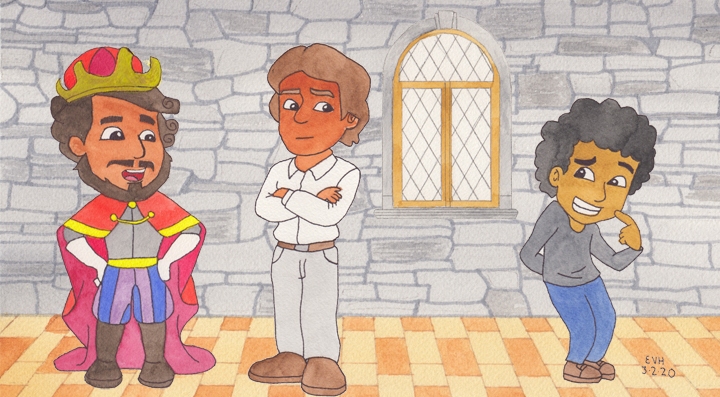
Jataka 225
Khanti Vaṇṇana Jātaka
Praising Forgiveness
as told by Eric Van Horn
originally translated by William Henry Denham Rouse, Cambridge University
originally edited by Professor Edward Byles Cowell, Cambridge University
This is an interesting story, and it is theme that has occurred before in the Jātaka. In this story, a king plus another man have people in their entourage misbehave. We never find out exactly what they did, but it appears that the offenders have made their masters out to be fools. But the conspirators are otherwise useful, and the story counsels patience and forbearance, two qualities that are central to the Buddha’s teaching.
Having said that, the offenders also discover that their misdeeds are known, and this sense of shame causes them to reform their bad behavior. This will not always happen, of course, but often people misbehave because they think that no one knows what they are doing. Simply knowing that they have been found out can often lead them to reform.
“There is a man.” The Master told this story at Jetavana. It is about the King of Kosala (King Pasenadi). A very useful subordinate conspired in the harem. Even though he knew the culprit, the King overlooked the affront because the fellow was useful. The King told the Master what had happened. The Master said, “Other kings in days long gone by have done the same.” And at his request, he told the following story.
Once upon a time, when Brahmadatta was the King of Benares, a man of his court conspired against him in the King’s harem. An attendant of this courtier did the same thing in the courtier’s house. The man could not endure being insulted in this way. So he led the conspirator before the King saying, “My lord, I have a servant who does all manner of work, and he has made me look like a fool. What should I do with him?” And with this question he uttered the first verse:
“There is a man within my house, a zealous servant too,
He has betrayed my trust, oh King! Say what am I to do?”
On hearing this, the King uttered the second verse:
“I too a zealous servant have, and here he stands, indeed!
Good men, I think, are rare enough, so patience I do plead.”
The courtier saw that these words of the King were aimed at him, and from then on he dared to do no wrong in the King’s house. Likewise, the servant came to know that the matter had been reported to the King, and he did not dare to misbehave ever again.

Figure: “I have a nitwit, too!”
This discourse ended, the Master identified the birth: “I was the King of Benares.” And the courtier on this occasion found out that the King had reported him to the Master, and he never misbehaved again.
